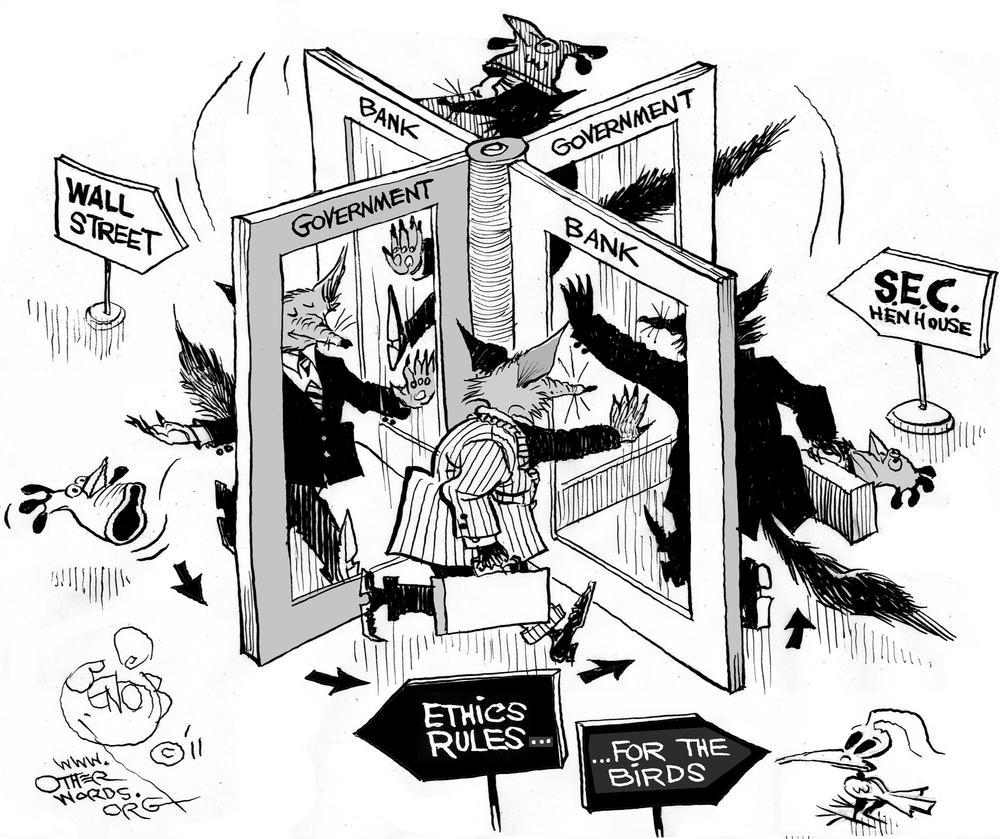Former Tory chancellor Sajid Javid has moved seamlessly from the Treasury to a plush job at JP Morgan, the global banking giant. To stop this revolving door between the state and business, we need a socialist economy with workers’ control.
Within six months of resigning as chancellor, Sajid Javid has found himself a senior position at US-based bank JP Morgan. The former Tory minister is now on the bank’s advisory council for Europe, the Middle East and Africa.
Javid will be in good company. Other paid-for ex-politicians on the council including the former Finnish Prime Minister, Esko Aho, and former Italian finance minister, Vittorio Grilli.
This is yet another clear example of how big business and the state are welded together at the hip.
Unfair advantage?
 Javid had worked previously for JP Morgan before his political career. But his latest role puts the company at a big advantage, given Javid’s insider knowledge of future government strategies.
Javid had worked previously for JP Morgan before his political career. But his latest role puts the company at a big advantage, given Javid’s insider knowledge of future government strategies.
This includes any post-Brexit policies that the UK may adopt, as well as knowledge of “potentially at-risk” firms, according to the Advisory Committee on Business Appointments (ACOBA), a government body which oversees potential conflicts of interests for former government members who are out looking for new jobs.
ACOBA claims that the COVID-19 pandemic is a mitigating factor in Javid’s case, since government policy has changed dramatically since his departure. However, it has also warned that Javid should not draw on any privileged information from his time in government.
Nevertheless, ACOBA has given Javid the green light to take this position. Voters, therefore, are being asked to believe that he will somehow not use any government insight, either accidentally or deliberately.
Toothless regulator
ACOBA is supposedly in place to prevent corruption and unfair advantages that could be facilitated by ex-government officials. But, in practice, the committee is not statutory. And it offers little more than stern words to those who ignore it.
Elsewhere, in 2018, within days of resigning as foreign secretary, Boris Johnson took on a role as columnist at the Telegraph. He did this without so much as consulting the committee. And he suffered no consequences as a result.
Indeed, ACOBA has been heavily criticised in the past. A 2017 report described the committee as a “toothless regulator” with “numerous loopholes”.
Spare us the false outrage. This is business as usual.
The revolving door is a mechanism that ensures that policy-makers go on to work for the corporations that they are supposed to be regulating.https://t.co/6ZUqYUtyxD
— Marxist Student (@MarxistStudent) August 19, 2020
How can we possibly be expected to trust Javid or any of these crooked big business politicians? After all, history has shown that those displaying utter contempt for the rules bear no consequences.
This is not accidental, however. In reality, the one-thousand-and-one connections between big business and the state are essential for – and a reflection of – the rule of the capitalist class.
Workers’ control
Under capitalism, the revolving door will continue to spin. It is one of many means by which the bosses ensure that politicians remain in their pockets. All the while, the ruling class insist we live in a ‘meritocracy’.
The labour movement must fight against politicians taking any big business appointments. This includes not only rotten Tory and Liberal MPs, but also the careerists and carpetbaggers in the Parliamentary Labour Party.
In place of these representatives of big business, we demand workers’ MPs who take only an average worker’s wage.
Ultimately, however, the intrinsic link between business and the state can only be severed by taking control of the economy out of the hands of the bankers and bosses, and putting it in the hands of the organised working class. Only by building a socialist society on the basis of workers’ control will the door finally stop spinning.






